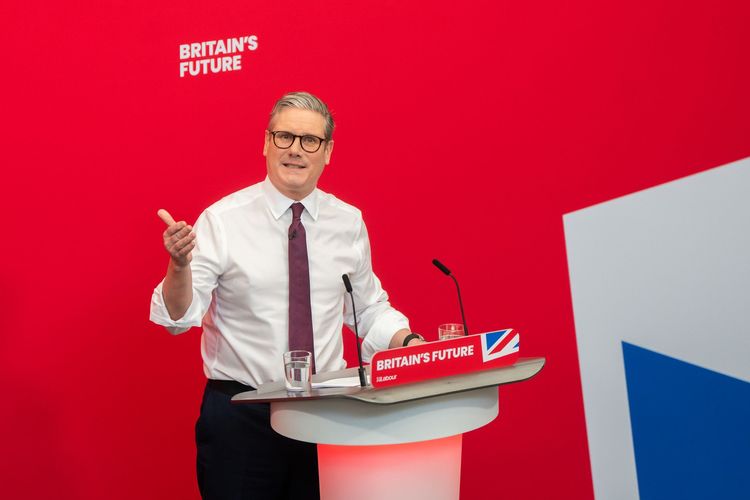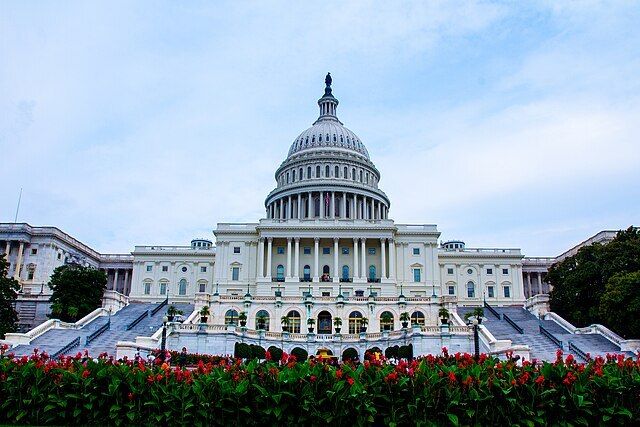Okay, Positive, Good, Busy: How have Britons perceived Labour’s first week in Government?

‘24
By: Atyeo Thomas du Toit
Labour’s first week in government has been incredibly fast, announcing changes to energy production, approval of large projects, housing targets, a National Wealth Fund, an NHS audit, Starmer travelling to the four nations and NATO, and so much more.
We know that they have been waiting for the opportunity to get behind the wheel of power for 14 years, and have likely mapped out the roadmap of the first week, month, year, term, many times over - but how are their first steps being seen by the public?
Energy and the environment
There has been a lot of focus on energy and the environment this week, with different government departments coming together to push through their plans.
The government has approved three large solar farms, lifted the ban on onshore wind farms in England, and announced a review of the green belt to establish new greyfield sites on which they will develop new houses.
Our polling has shown that 53% of Brits think the lifting of the onshore wind ban was a positive change, compared to just 18% who saw it as a negative, with 29% unsure. As will be a theme throughout this data, the new administration must get their messaging right in order to win over the undecided voters for their vision of Britain’s future.
There has already been backlash from Tory MPs and associated newspapers over the decision to grant approval to three large solar farms last week. They argue that food security is at risk, that the development covers prime farmland.
The same goes for their more aggressive stance on approving infrastructure projects at the national level, as set out by Rachel Reeves in her first speech as Chancellor. Our polling shows 40% of Britons think this is a good change, compared to just 13% who think it is a bad one. Although this leaves a significant 47% of Britons undecided on the subject, this data provides a solid foundation for Labour to build their messaging about their vision for development and infrastructure in the UK.
Results in England, where the onshore wind ban was in place, show their sentiment perfectly matches that of all Britons on the issue. This could shift though, as the reality of projects start to materialise.
We’ve been tracking Britons’ views on where the UK’s energy focus should be since August 2023. Our polling has shown that across the UK this week, Britons think that solar power should be the number one priority for the UK’s energy mix, at 40%. Onshore wind comes in at third, with 32%, whilst new oil comes in last at just 14%.
Support for these energy sources have fallen in our most recent polls compared to previous months. Whilst this week's announcement of the large solar farms may have had an effect, along with the 5% increase in ‘don’t know’s’ since last week, there’s no hiding from the overall trend of a desire for renewable energy from the UK electorate.
Public opinion, therefore, seems to be on the side of the government’s ambitions for cleaner energy production and more infrastructure building, though the politics of it could ensure it’s harder to push through controversial projects later in a term when areas with local Labour MPs are affected. Britons are fearful of this - with 52% saying they don’t believe Keir Starmer’s pledge to put ‘Country first, Party second’.
This week’s polling suggests that Labour should spend some effort convincing voters that their house building ambitions will not significantly affect nature and the greenbelt. 25% of Britons think house building should be prioritised over conservation of nature, compared to 29% who think it should be balanced, whilst 28% think that nature should be prioritised more on balance.
Will Keir be a better Prime Minister than those before him?
As with other issues we’ve discussed, Labour will hope that their messaging over the next few years will win over the voters who are undecided on their new policies.
Our polling also suggested considerable optimism about the new government headed by Keir Starmer. Britons think he will be a better Prime Minister than everyone who has held the post going back to and including Tony Blair, in 1997. This is strengthened by 41% of Brits saying they feel optimistic about his premiership, whilst 32% are pessimistic, leaving 27% undecided.
Intriguingly, Conservative voters think Starmer will only be better than Liz Truss, whilst Labour voters have considerable optimism that he will be better than both Brown and Blair by a large margin. As a whole, Britons are more united in their belief that Starmer will be better than every conservative Prime Minister since 2010 than they are about the Labour Prime Ministers on the list.
This comes as we ran our first approval rating of Keir Starmer in his new post as Prime Minister. Our results showed that nearly half of Britons haven’t made up their mind, and will likely be swayed by delivery and competency over his premiership. Taking office with a net approval of +23 isn’t a bad place to be, however, with 38% of Brits approving of his handling so far.
How do Brits feel about the outcome of the election?
Finally, we asked Britons how they felt about the outcome of the election - a large labour majority. We found that just 19% were ‘upset’ or ‘very upset’, whilst 41% were happy. Only two parties, Reform UK and the Conservatives, were majority unhappy with the result, with 1 in 5 Reform voters being happy with the result.
Again, the large neutral base here feeds into the narrative throughout: the new Labour government needs to deliver and effectively communicate in order to win over the large undecided electorate.
Starmer’s premiership will ultimately be judged on delivery. Labour know this, already framing their actions with the messaging of a government of ‘service and delivery’. Our polling suggests that Starmer, and the government, have a strong base of approval, but in order to win over the undecided / politically disillusioned voters (see last week’s opinion) he must deliver.
‘24
By: Atyeo Thomas du Toit
Sign up for our newsletter
Stay up-to-date with the latest poll results and insights.


